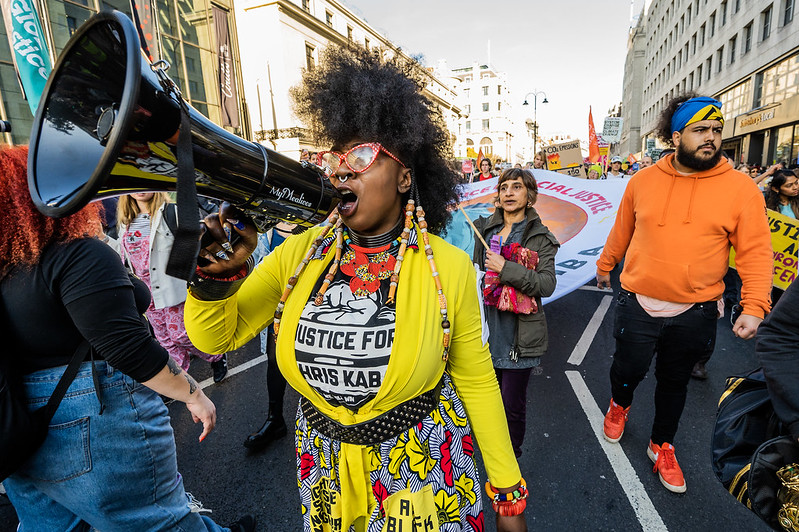French oil and gas company Total has escaped censure of its East African oil pipeline in a French court over a series of technicalities.
A group of French and Ugandan campaigners argued in court that Total did not do enough to stop environmental and human rights problems in its East Africa Crude Oil Pipeline (Eacop) and the associated Tilenga oilfield.
They asked the court to order the company’s vigilance plan, meant to address issues like environmental risks and community displacement, to be rewritten.
But judges decided they did not have the power to conduct the in-depth examination neccessary and said the campaigners’ legal case had changed too much since they first filed.
South Africa tried to weaken corruption safeguards in coal phase out deal, says CEO
A Total spokesperson defended its plan and highlighted the judgment’s ruling that it was “sufficiently detailed to not be considered as summary”.
But campaigners pointed out that judges did not rule on the details at the heart of the case. They denied their case had significantly changed and said they were considering an appeal.
Dickens Kamugisha, director of the Africa Institute for Energy Governance (Afiego), described the decision as a “huge disappointment for the associations and communities affected in Uganda and Tanzania who had placed their hopes in French justice”.
The judgment, published earlier today, was the first test of France’s novel corporate duty of vigilance law.
This requires all large businesses headquartered in France and international corporations with a significant presence there to set out clear measures to prevent human rights violations and environmental damage – even among their subsidiaries.
Huge pipeline
In 2021, Total signed an agreement with Uganda and Tanzania to start building the $3.5 billion, 1,443-kilometre pipeline alongside the state-owned China National Offshore Oil Corporation and Uganda National Oil Company. It will transport crude oil from the Tilenga oilfields being developed in north-western Uganda to a Tanzanian port on the Indian Ocean.
The project has proved hugely controversial for its contribution to climate change and the impacts on people living along its path.
Research by the US-based Climate Accountability Institute concluded it would emit 379 million tonnes of carbon over its 25-year lifespan – much more than laid out in the project’s environmental impact statements, which only account for the pipeline’s direct construction and operation.
In a resolution last year, the European Parliament expressed “grave concern” about alleged human rights violations in Uganda and Tanzania, linked to the project. And Ugandan protestors concerned about its impact on the local environment, displacement of communities and the lack of benefits accruing to Uganda have accused police of brutality towards them.
Campaigners have put huge pressure on financial institutions and insurers not to support Eacop for environmental and human rights reasons, and many have publicly distanced themselves from the project.
But with both the Ugandan and Tanzanian governments have given formal construction approval in the last few months, work on the pipeline is now expected to progress.
Uganda’s president Yoweri Museveni has accused Western critics of the project of hypocrisy because only a handful of nations have committed to ending their own fossil fuel production.
Other Eacop lawsuits are still pending. One was filed by Afiego in Uganda against the country’s environmental and petroleum authorities for approving Tilenga’s environmental and social impact assessment. And another brought by civil society organisations from Uganda and Tanzania is at the East African Court of Justice, although this has been bogged down by jurisdictional arguments.
Duty of vigilance?
Although the lawsuit against Eacop was unsuccessful, several other environmental lawsuits have been filed under the same French law.
In 2020, a coalition of NGOs and local authorities filed a separate case against Total, claiming it is legally required to identify the risks resulting from its contribution to global warming and to take the necessary measures to reduce its emissions. The case was joined two years later by Paris, New York, the city of Poitiers and Amnesty International France. They recently asked the courts to order the multinational to take provisional measures such as the suspension of new oil and gas projects pending the court’s ruling.
A coalition of Brazilian and Colombian indigenous peoples’ organisations and international NGOs have also sued supermarket chain Casino under the duty of vigilance law, accusing it not having taken the necessary measures to exclude beef linked to illegal deforestation, land grabbing and violations of indigenous peoples’ rights from its supply chain in Brazil and Colombia.
Two months ago, food corporation Danone was sued by ClientEarth, Surfrider Foundation Europe and Zero Waste France, who accused it of not doing enough to reduce its plastic footprint and so failing to live up to its duties under the law.
And in the last week alone, two duty of vigilance claims were filed against French bank BNP Paribas. Oxfam France, Friends of the Earth France and Notre Affaire à Tous are suing it for supporting companies that aggressively develop new oil and gas fields and infrastructure, while Notre Affaire à Tous and Brazilian NGO Comissão Pastoral da Terra have taken aim at its provision of financial services to companies they allege contribute to deforestation of the Amazon rainforest.
